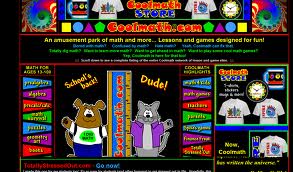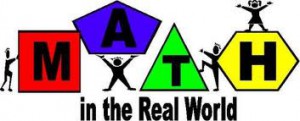Fun Ways to Boost Your Child’s Math Skills This Summer (and Beyond)
July 23, 2013
Research shows that there is an approximate 2 month loss of math skills for most all kids over the summer when they don’t practice and use math. There are many ways to prevent this “summer slide” and boost your child’s skills through math games, motivating ways to practice, and activities that involve “real life application” of math during the summer.
Math Games and Puzzles
ONLINE MATH GAMES
My blog entitled “Fun and Free Interactive Online Math Games” shared some of the free educational online math sites that I recommend. These games are a very motivating way for kids to be mathematically engaged and challenged. Besides those three websites I featured in the blog (FunBrain, Math-Play, and CoolMath4Kids), here are some additional ones that are worthwhile exploring: Sheppard Software, Fuel the Brain, Turtle Diary, Mr. Nussbaum, Math Cats, and PBS Kids.
BOARD, CARD, AND DICE GAMES
Although there are so many math games that can be played via computer, tablet, or iPhone, I don’t think anything can replace the face-to-face interaction of board games, card games, and dice games.
Traditional board games, such as: Monopoly, Dominos, Trouble, Mastermind, Othello, Chess, Uno, Battleship), Card games (e.g., Crazy 8s, Rummy, War), and any games with dice – are great for sharpening a host of skills ( e.g., problem-solving. logic/deductive reasoning, sequencing, spatial relations, mental math, counting, arithmetic) while having fun. Playing such games can strengthen concentration, sustained focus, rule-following, cooperation, and social skills (e.g., taking turns, sportsmanship). Have your child be the scorekeeper or banker when possible (or share the role).
There are so many board games besides these “oldies but goodies” I mention above. You may want to check out this list of “best board games for all ages” by Education.com that includes the newer games on the market that you may not be familiar to you.
Check these two links, as well, from my daughter-in-law’s blogs on Teacher Resources for Parents for some great card and dice games for building math skills:
Family Fun Math Card and Dice Game
A Fun Basic Math Game with a Couple Decks of Cards – describing the game “Math War” and its variations (Basic War, Addition War, Advanced Addition War, Subtraction War, Place Value War, and Product War).
MATH PUZZLES
There are different math puzzles that may motivate your child. Sudoku, for example, is a very popular number-based logic problem-solving puzzle. Jigsaw puzzles are great for building spatial awareness, attention to details, and other skills that have math benefits. Cool Math 4 Kids has lots of math puzzles and “brain benders” for kids of all ages on their free website.
Online Math Programs (not games) for Learning and Practicing Math Skills
IXL for students K-8 is a math-practice website with unlimited practice questions on hundreds of topics for each grade level. The questions also adapt to your child’s ability, increasing in difficulty as they improve. The system measures how much time your child spends on any particular skill once they complete a skill
AAA Math is a free site for thousands of interactive arithmetic lessons for kids K-8th grades. Unlimited practice is available on each topic. Immediate feedback prevents practicing and learning incorrect methods.
Mathletics A motivating online math program for homes and schools.
Dreambox Learning Math combines a rigorous math curriculum with fun online lessons that adjust to the way your child learns.
Webmath is a math-help web site that generates answers to specific math questions and problems, as entered by a user, at any particular moment. The math answers are generated and displayed real-time, at the moment a web user types in their math problem and clicks “solve.” In addition to the answers, Webmath also shows the student how to arrive at the answer.
Real Life Math Applications
There are so many ways that everyday activities are opportunities to use and strengthen math skills.
- While waiting for appointments, standing in line, driving in the car, and other opportune times, pose math questions/challenges for your child to figure out (preferably mentally). For example, in line to purchase tickets at the movie theater or prior to going to the theater, ask questions such as: “For this movie an adult ticket costs $9.50 and a child’s ticket is $7.00. How much will our 3 tickets cost? If we want to also buy 2 small popcorns to share, what’s our total cost going to be with tickets and popcorn?”
- Similarly, at restaurants you can: have your child estimate how much the meal will cost, have your child calculate the total by looking at the prices of the items ordered on the menu and then checking for accuracy when the bill arrives (with or without tax included).
- Have your child count money and practice making change.
- Shopping: When you go to the store with your child ask questions such as: We need 3 jars of this tomato sauce ($2.25 per jar). How much will those 3 jars cost? What’s your estimate of the total cost of these 8 items in the cart? Then compare the estimate with the real price (using a calculator or waiting until checking out and seeing the receipt).
- Any kind of budgeting – saving money for a special purchase they want can provide valuable math practice (e.g., How much do I need to save up ? How much more do I still need?) Have your child do a search for the best price of the product or watch for sales. Figure in tax, as well.
- Have your child help you in cooking, building, or anything involving measurement. Give your child practice measuring with rulers, yardsticks, metric sticks, measuring cups and spoons, tape measures, and other measurement tools.
- A lot of art activities involve math (e.g., geometric shapes, lines and angles, patterns, symmetry). The same is true for any construction/building and making creative designs with Legos, Magnetiles, blocks, etc.
- Cooking and baking provide numerous math learning opportunities (e.g. measurement, working with whole numbers and fractions, figuring out equivalent fractions), as well as reading and writing. For example, your “chef” can help you in planning a meal and writing the shopping list. Bring your child to the grocery store and help locate the ingredients, read labels, and other such activities. Then, of course, comes the actual cooking and baking. In addition, your child may want to design and write up a menu, etc.
- On any car trips, your child can be given math challenges (depending on age/level, of course). For example: to estimate and then calculate the distance and mileage, cost of gas if they know miles per gallon on your car, and so forth.
We have a list of 80 activities found in our book How to Reach & Teach All Children in the Inclusive Classroom, 2nd Edition, by S. Rief & J. Heimburge. Here are 8 examples from our book:
SURVIVAL MATH ACTIVITIES – EXPERIENCING MATH IN YOUR EVERYDAY LIFE
- Prepare a grocery list with your parents. Go to the store with your parent or online. Select 5 items and do a comparative price check (different brands, making sure weight on the package is exactly the same or a very close match.
- At restaurant ask for bill and check to see if added correctly. Figure out how much tip should be given.
- Keep a record of how many miles your family’s cars travel in a 2-3 week period. Record mileage, find the average.
- Find out how much each of the major theme parks cost in your state. Figure out admission prices for your entire family.
- Keep track of the scores of your favorite baseball team for 10 games. List each of the games, who played, and the score. Figure out the average number of points the team scored during these 10 games overall (mean). Identify the median score and mode.
- Find out the cost of season tickets for the next season for your favorite pro or local college football team. Compare the price of the most expensive seats and least expensive seats for your family. How much does parking cost at the stadium? How much is that altogether for an evening at a sports event?
- Measure your bedroom (length, width, perimeter, area. Decide how many square feet of carpet you need or border around the room.
- Find out how much it costs to camp overnight for your family at one of your county or state parks. Also, how much does it cost at local tourist type hotel where you live. Figure out the difference for a week of vacation at both places.
MORE MATH IDEAS
I have a bunch of great math strategies and activities for kids of all ages posted on my Pinterest board. Parents and teachers will find a lot of motivating and fun math activities here.
Tags: card and dice games, math activities, math games, math puzzles, math skills, parent tips, Rief, summer slide









